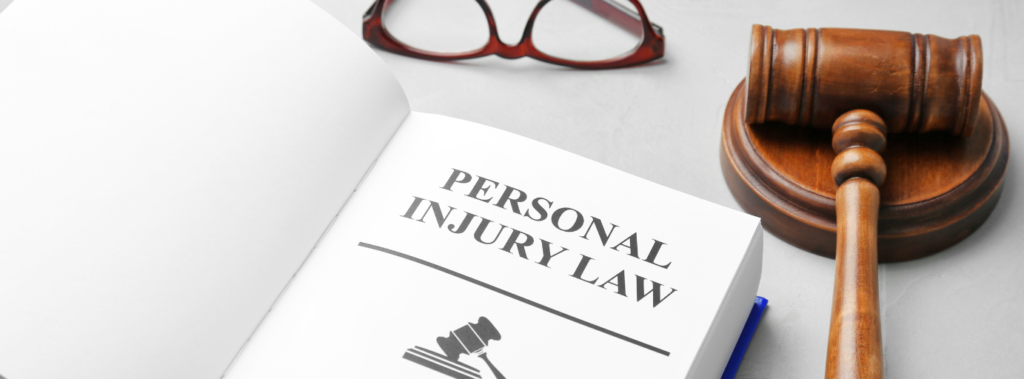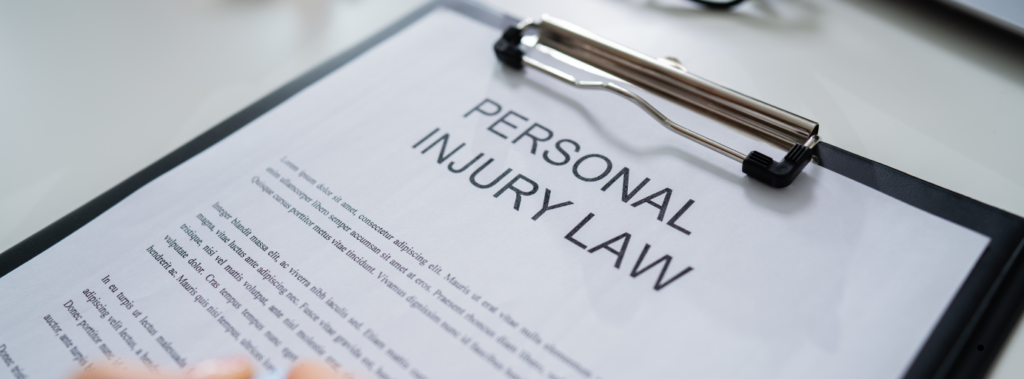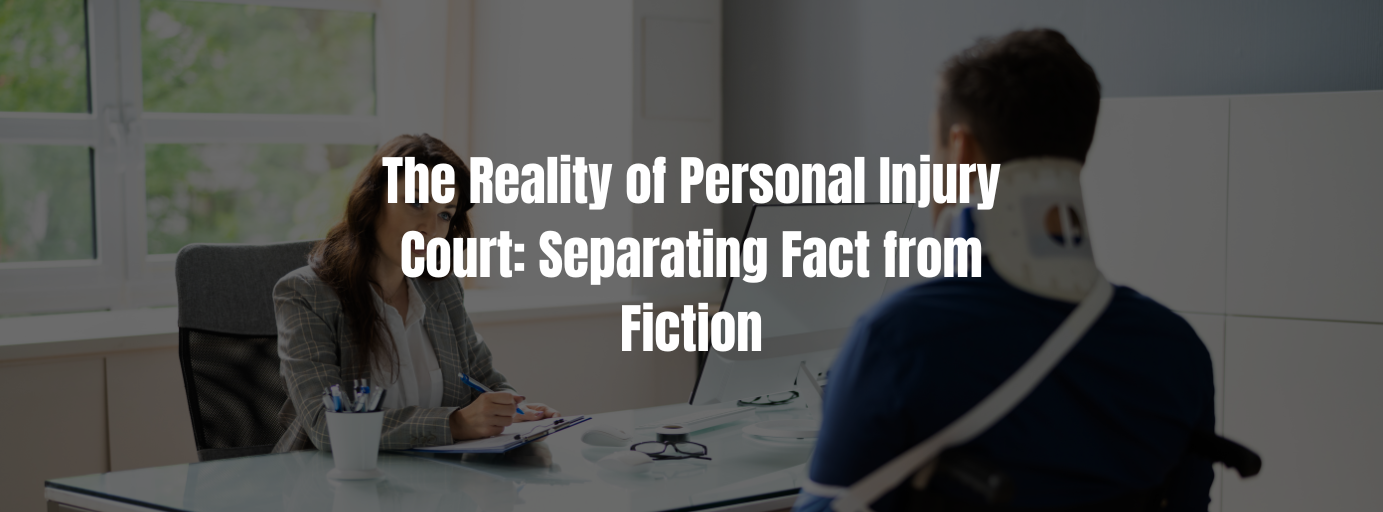Introduction
Filing a personal injury lawsuit can be a daunting and complex process, often shrouded in misconceptions and misinformation. In this comprehensive guide, we’ll delve into the realities of the personal injury court system, separating fact from fiction to empower you with the knowledge needed to navigate this legal landscape successfully.
Understanding the Personal Injury Claim Process
When you suffer an injury due to someone else’s negligence, the path to seeking compensation can feel overwhelming. However, the personal injury claim process follows a well-defined set of steps.
The journey typically begins with filing a personal injury lawsuit, where you and your personal injury attorney present your case to the court. This initiates a timeline that can span several months to a year or more, depending on the complexity of the case.
During this time, you’ll need to gather and document all relevant evidence, including medical records, witness statements, and accident reports. Your personal injury lawyer will work closely with you to build a strong case, preparing for potential depositions and court appearances.
It’s important to note that personal injury cases are subject to statutes of limitations, which vary by state. These time constraints require prompt action to ensure your legal rights are protected.
Common Misconceptions About Personal Injury Court
Despite the prevalence of personal injury lawsuits, many myths and misconceptions persist. Let’s address some of the most common ones:
Myth 1: Personal injury cases always go to trial
Fact: In reality, the majority of personal injury cases are settled out of court, with only a small percentage ultimately reaching the courtroom.
Myth 2: You’ll receive a massive payout if you win your case
Fact: Compensation in personal injury cases is based on actual damages, including medical expenses, lost wages, and pain and suffering. The payout amount is determined by the specific circumstances of the case, not exaggerated expectations.
Myth 3: Personal injury lawyers are only in it for the money
Fact: Personal injury attorneys typically work on a contingency fee basis, meaning they only get paid if you win your case. Their motivation is to secure the maximum compensation for their clients, not to line their own pockets.
Understanding these common myths can help you approach your personal injury claim with realistic expectations and a better understanding of the legal process.

What to Expect in a Personal Injury Court Trial
While most personal injury cases are resolved outside of court, some do proceed to trial. If your case reaches this stage, you can expect the following:
- Jury selection
A pool of potential jurors will be questioned and vetted to ensure an impartial jury is selected to hear the case.
- Presenting evidence and witness testimony
Both your personal injury lawyer and the opposing counsel will have the opportunity to present evidence and call upon witnesses to support their respective arguments.
- Cross-examination and rebuttals
Each side will have the chance to cross-examine the other’s witnesses and provide rebuttals to counter their claims.
- Closing arguments and the judge’s instructions
The final stage involves closing arguments from both legal teams, followed by the judge’s instructions to the jury on how to evaluate the case and reach a verdict.
Understanding the trial process can help you and your personal injury attorney prepare for the rigors of court proceedings and increase your chances of a favorable outcome.
Strategies for Success in Personal Injury Court
Navigating the personal injury court system successfully requires a multi-faceted approach. Here are some key strategies to consider:
- Thorough documentation
Meticulously documenting your injuries, medical treatment, and all related expenses is crucial. This evidence will be the foundation of your case.
- Collaboration with your personal injury lawyer
Maintain open communication with your attorney, providing them with all relevant information and working closely to develop the best legal strategy.
- Preparation for depositions and court appearances
Be ready to answer questions truthfully and confidently, as this can significantly impact the outcome of your case.
- Negotiation tactics for settlements
In many cases, reaching a fair settlement outside of court may be the best outcome. Your personal injury lawyer will employ effective negotiation strategies to achieve the highest possible compensation.
By following these strategies, you can increase your chances of a successful personal injury court case and obtain the compensation you deserve.
Coping with the Emotional Toll of Personal Injury Court
Navigating the personal injury court system can be emotionally taxing, as the process often involves reliving the traumatic events that led to your injury. It’s essential to prioritize your mental and physical well-being throughout the ordeal.
- Dealing with stress and anxiety
The uncertainty and demands of the legal process can be overwhelming. Engage in stress-management techniques, such as meditation, exercise, or seeking support from a mental health professional.
- Maintaining your overall health
Ensure that you continue to attend all recommended medical appointments and follow your treatment plan. Taking care of your physical well-being can help you cope with the emotional strain.
- Seeking support from loved ones and professionals
Surrounding yourself with a strong support network, whether it’s family, friends, or a therapist, can provide the emotional comfort and guidance you need during this challenging time.
By prioritizing your well-being, you can better navigate the personal injury court process and emerge stronger, both physically and mentally.

Key Takeaways: The Realities of Personal Injury Court
The personal injury court system is a complex and multifaceted legal landscape. By separating fact from fiction, you can approach your case with realistic expectations and a better understanding of the process:
- Most personal injury cases are settled out of court, with only a small percentage reaching the trial stage.
- Compensation is based on actual damages, not exaggerated payouts.
- Personal injury lawyers work on a contingency fee basis, incentivizing them to secure the maximum possible compensation for their clients.
- Thorough documentation, collaboration with your attorney, and effective negotiation strategies are key to success in personal injury court.
- Prioritizing your mental and physical well-being throughout the process is essential for coping with the emotional toll.
By embracing the realities of the personal injury court system, you can navigate this legal landscape with confidence and increase your chances of achieving a favorable outcome.
Trusted Legal Assistance for Your Personal Injury Claim
Turn to our experienced network of personal injury lawyers for assistance. At Claim Settlement, our team of legal experts boasts over 30 years of collective experience in successfully handling personal injury and accident cases, securing millions of dollars in settlements for our clients. Benefit from our complimentary initial consultations and rest assured, you won’t incur any fees until our network of lawyers has secured the compensation you rightfully deserve.
If you’ve suffered an injury or been involved in an accident, reach out to us at 1-833-892-5246 for a no-obligation consultation, or email us at claim@claimsettlement.ca.
FAQ
[sp_easyaccordion id=”2979″]
